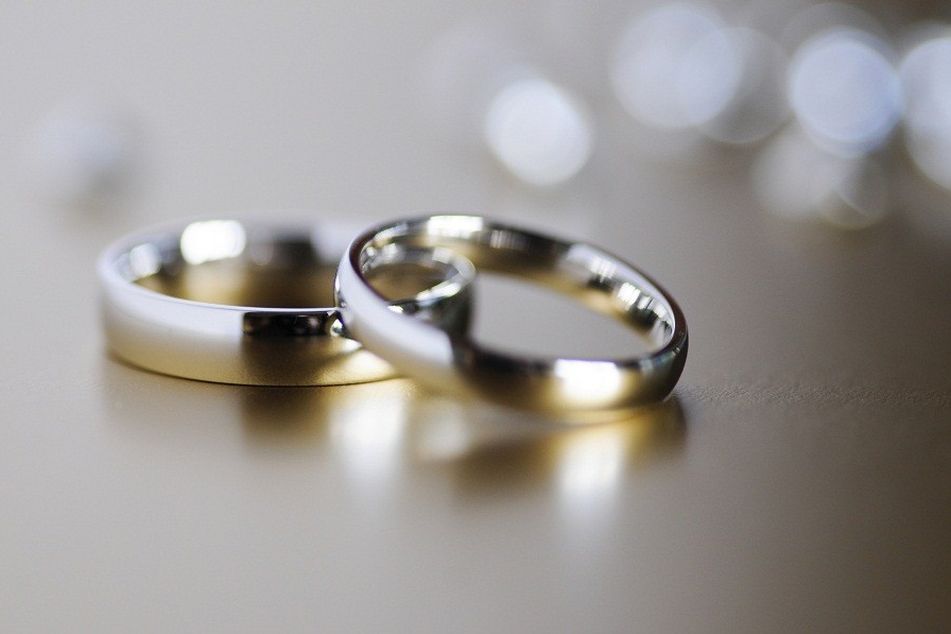Some married gay couples surprised by new tax burden

Last year's Supreme Court ruling was a mixed bag for some married gay couples. Some had less trouble filing state taxes, while others had a higher tax bill.
The Supreme Court’s ruling last year to grant a constitutional right to same-sex marriage has simplified the tax process for many gay couples, but also has contributed to shock and even the feeling they were being prejudiced because of a higher-than-expected tax hit.
“There was so much talk and emphasis ahead of the marriage ruling in terms of the rights and privileges same-sex couples missed out on by not being able to be married,” said Lorraine Johnson, president of Raleigh, N.C.-based Triangle Financial Advisors, which specializes in providing advisory services for gay couples. “Most didn’t understand that there are sometimes some disadvantages.”
The tax season that ended April 18 represented the first time married gay couples nationwide received the same tax treatment under the law as married heterosexual couples, regardless of the state they live in, thanks to the Supreme Court’s landmark June 2015 decision.
Some who’ve wed since that ruling and filed a joint federal income-tax return for the first time this tax season thought their taxes would be lower compared to their return as single filers, when in fact the opposite was true in many cases, advisers said.
“They think it’s because they are a same-sex couple that this is happening to them,” Ms. Johnson said. “And I have to explain to them, ‘No, this is because you’re a married couple, and it’s been happening to everybody else for years. It’s just that everybody else is used to it.’”
Many gay couples are getting married at a later stage in their lives, because the option hadn’t been previously available, so spouses are further along in their careers, have higher-paying jobs, are combining incomes and experiencing the “joy of the marriage penalty,” said Jennifer Hatch, president and managing partner at New York City-based Christopher Street Financial.
For example, partners each with $150,000 in taxable income would fall in the 28% tax bracket for single filers; with combined taxable income of $300,000, they’d fall into the 33% bracket.
Ms. Hatch has been dealing with such client frustrations since 2013, when a separate Supreme Court ruling, in United States v. Windsor, granted federal marriage recognition, and her married clients in New York, for example, began filing a joint federal return as a result.
One scenario in which filing jointly could have helped ease the tax burden for gay couples this year is in a scenario of fairly wide income disparity between partners, advisers said.
That was the case for Pearce Landry-Wegener, a wealth management adviser at Summit Place Financial Advisors, who lives with his husband in Louisiana, one state that had a convoluted tax system for same-sex couples prior to the high court’s ruling. Because his spouse is a student and doesn’t earn an income, their tax burden was lower as joint rather than single filers.
The Supreme Court did make the tax process much simpler for married couples in certain states. Prior to the ruling, couples who wed in states recognizing same-sex marriage but who were residents in states that didn’t recognize the union may have been required to file five separate tax returns.
“It simplified the process for a lot of people,” Mr. Landry-Wegener said. He and his spouse, who were married in New York, would have had to file a joint federal return, as well as fill out individual “dummy” federal tax returns used to calculate state tax liability (but which aren’t actually filed with the federal government), and file individual state tax returns.
Moving to a “married filing separately” status may seem a rational move to save on taxes, but the vast majority of the time this is actually disadvantageous to do, according to Carla Daniel, principal at Blackman & Sloop, CPAs.
For example, both spouses must choose between taking a standard deduction or itemizing — there can’t be mixing and matching. Individuals lose out on a lot of potential credits as well when filing this way, such as with some of the child tax credits available, Ms. Daniel said.
A potentially higher tax burden is something many newlywed gay couples may just have to accept — although, quitting a job or making less money is an option to reduce the joint tax burden, Ms. Hatch said jokingly.
While advisers said clients also could remain single to avoid a higher tax bill, they also said many clients would rather wed and take advantage of equality under the law than lower their taxes.
“I’ll pay more taxes any day of the week,” Mr. Landry-Wegener said.
Learn more about reprints and licensing for this article.








